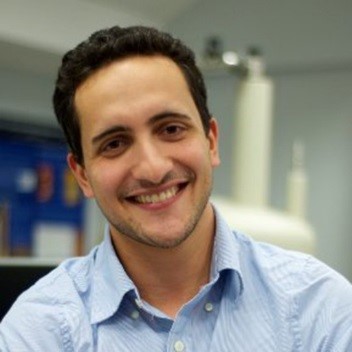Royal Society of NSW News & Events
1238th OGM and Christmas party
“From quantum devices to quantum machines”
 James Colless
James Colless
ARC Centre of Excellence for Engineered
Quantum Systems (EQuS),
University of Sydney
Jak Kelly Award winner for 2015
Wednesday 2 December 2015
Union, University and Schools Club, 25 Bent Street, Sydney
The Jak Kelly Award was created in honour of Professor Jak Kelly (1928 - 2012), who was Head of Physics at University of NSW from 1985 to 1989, was made an Honorary Professor of University of Sydney in 2004, and was President of the Royal Society of NSW in 2005 and 2006. Its purpose is to encourage excellence in postgraduate research in physics. It is supported by the Royal Society of NSW and the Australian Institute of Physics, NSW branch. The winner is selected from a short list of candidates who made presentations at the most recent Australian Institute of Physics, NSW branch postgraduate awards.
Quantum computing, the use of quantum phenomena to process information, has begun the long journey from hypothetical possibility to real-world applications. In the same way that the theoretical development of quantum mechanics fundamentally changed the way in which we understand the universe, quantum computing offers the potential to revolutionize the way in which we are able to interact with it. In particular, this counter-intuitive nanoscale world of superposition and entanglement may allow previously intractable computational problems to be solved efficiently.
The fundamental building blocks of a quantum information processor are isolated quantum mechanical two-level systems known as quantum bits or ‘qubits'. Ideally such systems are easy to manipulate while being decoupled from noise in their local environment - goals that are often contradictory. In order to outperform their classical cousins at meaningful tasks quantum computers will conservatively require the control of thousands to millions of qubits. While this is still orders of magnitude less than the billions of transistors on a modern microprocessor, it is still far beyond what is currently possible.
The talk explored the complexity of scaling quantum processors and discusses new techniques and hardware developed to meet these challenges. In particular new methods of readout are developed that allow the dispersive sensing of single-electrons using integrated sensors and the capability to read out multiple qubits simultaneously. A scalable control scheme is also demonstrated allowing large numbers of qubits to be manipulated with a small number of input signals.
James Colless is a postgraduate research student at the University of Sydney currently undertaking his PhD under the supervision of Professor David Reilly. His research focus is readout and control techniques for GaAs spin qubits. James hopes his research will influence the design and fabrication of reliable multiqubit gates.
Sydney meetings
- Sydney meetings 2024
- Sydney meetings 2023
- Sydney meetings 2022
- Sydney meetings 2021
- Sydney meetings 2020
- Sydney meetings 2019
- Sydney meetings 2018
- Sydney meetings 2017
- Sydney meetings 2016
- Sydney meetings 2015
- Sydney meetings 2014
- Sydney meetings 2013
- Sydney meetings 2012
- Sydney meetings 2011
- Sydney meetings 2010
- Sydney meetings 2009
- Sydney meetings 2008
- Sydney meetings 2007
- Sydney meetings 2006
- Sydney meetings 2005
Hunter meetings
- Hunter meetings 2023
- Hunter meetings 2022
- Hunter meetings 2021
- Hunter meetings 2020
- Hunter meetings 2019
Southern Highlands meetings
- Southern Highlands meetings 2023
- Southern Highlands meetings 2022
- Southern Highlands meetings 2021
- Southern Highlands meetings 2020
Details of events scheduled for the remainder of the current year by the Southern Highlands branch can be found on its website, while details of events of previous years can be found here.

